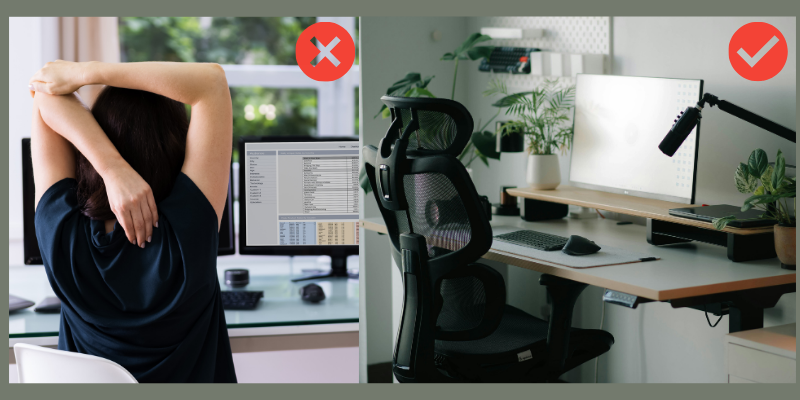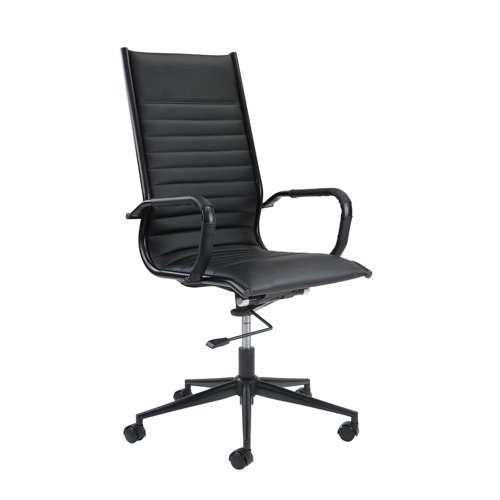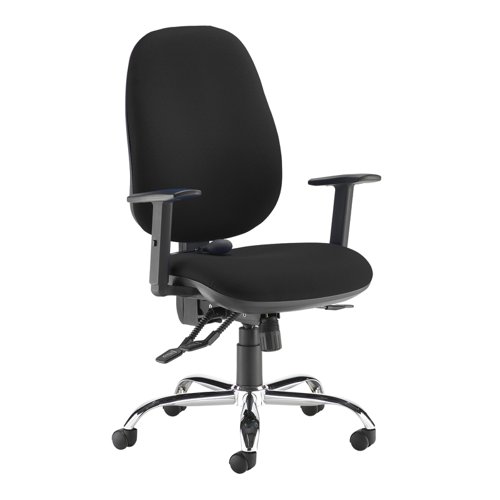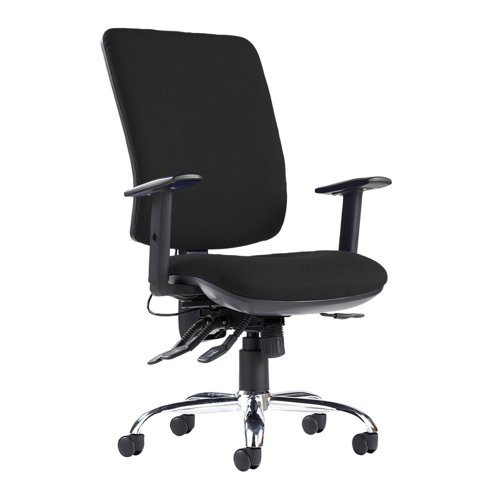Does a Good Office Chair Really Matter?
A good office chair isn’t just about looks or price tag...

Let’s be honest — when it comes to office furniture, the chair doesn’t always get the attention it deserves.
It’s just a chair? Something to sit on while you get your work done. But here’s the truth: a good office chair isn’t just a nice-to-have, it’s a game-changer.
Whether you're working in a busy office, at home, or setting up a new workspace, the chair you choose can have a big impact on your health, productivity, and well-being.
The hidden cost of a low-cost chair
We’ve all heard the saying: “Buy cheap, buy twice.” And when it comes to office chairs, it couldn’t be more accurate.
A low-cost chair may be suitable for occasional or low-use situations, or for budget restraint. It may seem like a saving at first, but over time, it can lead to:
- Poor posture and back pain
- Reduced focus and productivity
- Frequent replacements due to wear and tear
- Increased absenteeism due to discomfort or injury
In contrast, investing in a quality ergonomic chair can be beneficial in the long run, not to mention improving employee well-being and satisfaction.
What makes a chair “good”?
A good office chair isn’t just about looks or price tag. It’s about support, adjustability, comfort and durability. A good one will facilitate all-day comfort and productivity.
According to recent HSE (Health and Safety Executive) government statistics, back pain is one of the most common complaints, with 45% of workers affected by work-related musculoskeletal disorders.
Ailments caused by poor posture and repetitive strain injury (RSI) can be prevented with the good use of ergonomics. Poor posture when using your screen and the effects of sitting for prolonged periods can cause aches and strains.
Here’s what to look for when choosing your office chair:
1. Ergonomic design: Supports the natural curve of your spine, encourages movement, and reduces pressure on your lower back, arms and wrists
2. Adjustability: Height, tilt, armrest, and backrest adjustments are essential for a truly personalised fit
3. Build quality: Durable materials and solid construction mean your chair will last — and perform — for years
4. Long-term comfort: A good chair reduces fatigue, improves posture, and helps you stay comfortable, focused and productive
The productivity connection
It’s not just about comfort — it’s about performance. Studies have shown that ergonomic seating can lead to:
- A 17.7% increase in productivity
- Lower rates of musculoskeletal disorders
- Higher employee engagement and morale
When people feel good, they work better. It’s simple.
Final thoughts: sit smarter
So, does a good office chair really matter? Absolutely.
It’s not just a seat — it’s a foundation for your workday. It supports your body, your focus, and your long-term health. And while it might cost a bit more upfront, the return on investment is clear.
Take a look at some of our top chair picks below...
Make an appointment to visit our showroom






Latest Posts
Search Our Blog






Search Our Blog
Does a Good Office Chair Really Matter?
A good office chair isn’t just about looks or price tag...

Let’s be honest — when it comes to office furniture, the chair doesn’t always get the attention it deserves.
It’s just a chair? Something to sit on while you get your work done. But here’s the truth: a good office chair isn’t just a nice-to-have, it’s a game-changer.
Whether you're working in a busy office, at home, or setting up a new workspace, the chair you choose can have a big impact on your health, productivity, and well-being.
The hidden cost of a low-cost chair
We’ve all heard the saying: “Buy cheap, buy twice.” And when it comes to office chairs, it couldn’t be more accurate.
A low-cost chair may be suitable for occasional or low-use situations, or for budget restraint. It may seem like a saving at first, but over time, it can lead to:
- Poor posture and back pain
- Reduced focus and productivity
- Frequent replacements due to wear and tear
- Increased absenteeism due to discomfort or injury
In contrast, investing in a quality ergonomic chair can be beneficial in the long run, not to mention improving employee well-being and satisfaction.
What makes a chair “good”?
A good office chair isn’t just about looks or price tag. It’s about support, adjustability, comfort and durability. A good one will facilitate all-day comfort and productivity.
According to recent HSE (Health and Safety Executive) government statistics, back pain is one of the most common complaints, with 45% of workers affected by work-related musculoskeletal disorders.
Ailments caused by poor posture and repetitive strain injury (RSI) can be prevented with the good use of ergonomics. Poor posture when using your screen and the effects of sitting for prolonged periods can cause aches and strains.
Here’s what to look for when choosing your office chair:
1. Ergonomic design: Supports the natural curve of your spine, encourages movement, and reduces pressure on your lower back, arms and wrists
2. Adjustability: Height, tilt, armrest, and backrest adjustments are essential for a truly personalised fit
3. Build quality: Durable materials and solid construction mean your chair will last — and perform — for years
4. Long-term comfort: A good chair reduces fatigue, improves posture, and helps you stay comfortable, focused and productive
The productivity connection
It’s not just about comfort — it’s about performance. Studies have shown that ergonomic seating can lead to:
- A 17.7% increase in productivity
- Lower rates of musculoskeletal disorders
- Higher employee engagement and morale
When people feel good, they work better. It’s simple.
Final thoughts: sit smarter
So, does a good office chair really matter? Absolutely.
It’s not just a seat — it’s a foundation for your workday. It supports your body, your focus, and your long-term health. And while it might cost a bit more upfront, the return on investment is clear.
Take a look at some of our top chair picks below...
Make an appointment to visit our showroom



_1750938067.png)
